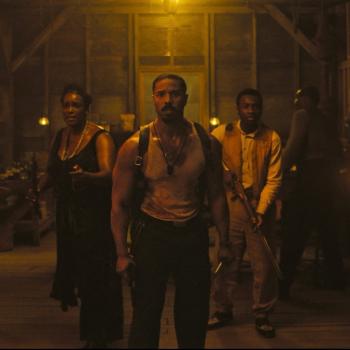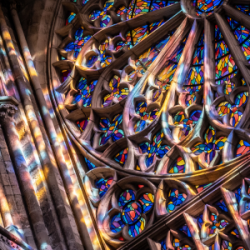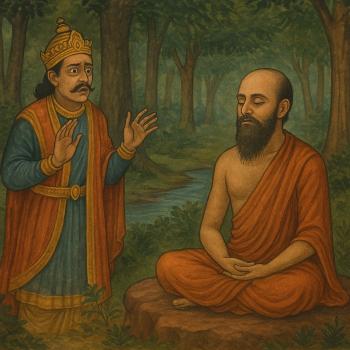Os Guinness (D.Phil., Oxford) is the author or editor of more than twenty-five books, including The American Hour, Time for Truth and The Case for Civility. A frequent speaker and prominent social critic, he was the founder of the Trinity Forum and has been a visiting fellow at the Brookings Institution and a guest scholar at the Woodrow Wilson Center for International Studies.
In this interview about his new book A Free People's Suicide: Sustainable Freedom and the American Future , Guinness discusses why the topic of freedom--and our actions on its behalf--are so important, especially in this election year. (Read more about this book at the Patheos Book Club here.]
What moved you to write this book?
Os Guinness: I'm a European, but I'm a great admirer of this country. I think when you come to things that are key for the world, such as freedom, America has what historians used to call the most nearly perfect system. But in the last fifty years, particularly since the 1960s, this country is in danger of undermining and throwing away its heritage. If ever America was to practice her first principles and be relevant to the whole world, it's today. But at the very moment she could be more relevant than ever, she isn't, because Americans are squandering their heritage. So I'm partly outraged at the follies I see in this country, and partly extremely sad.
Why is the topic of freedom so important to consider during an election year?
Os: Well here we are in the full cycle of the horse race, and many of the issues being discussed are relatively trivial, compared with the deep underlying issues of the republic. And unless they're put right, America will be in trouble. This issue of sustainable freedom is the very deepest one.
What can we learn from our nation's founders about establishing and sustaining freedom?
Os: The founding fathers had a clear understanding of the tasks they were trying to attempt. The first was to win freedom: the revolution in 1776. But revolutions are not that distinctive. The second task was ordering freedom: that's the Constitution, and that took longer and took a lot more thought. The third part, though, they were equally insistent on, and that was sustaining freedom. Now the fact is they stressed that, because that's the hardest part. But 230-odd years later, hardly any Americans talk of that today. But of course that is today's challenge.
Why is it such a critical time for American citizens to act?
Os: Now that America is dominant in the world, there's only one final stage after dominance, which is decline. So if America doesn't want to decline, you've got to consider what's sustainable. The current American versions of freedom are not sustainable. Unless America discusses how to sustain freedom and renew freedom, she will decline.
What do you mean by sustainable freedom?
Os: We think of the framers as revolutionary, and they were. But they were also rooted, in the sense that they tried to use history to defy history. If you look at the classics, you have umpteen reasons for why freedom never lasts. So they wanted to create the political equivalent of a perpetual motion machine: a free republic that could stay free forever. If you think of a recycling triangle with the sides that just keep going round and round, the framers' "golden triangle" was this: freedom requires virtue, virtue requires faith of some sort, and faith of any sort requires freedom (and that freedom requires virtue!). This is not a little moralistic saying; it's really hard prudential politics. If this triangle is preserved, then freedom has a chance of surviving.
What are the other kinds of freedom?
Os: The great Jewish philosopher Isaiah Berlin, who was at Oxford when I was a student, talked of the two types of freedom: negative and positive, or "freedom from" and "freedom for." And most modern Americans have only the negative view of freedom. Now, if I'm free from everybody else, I will cut myself off from being responsible for them. Libertarianism taken too far leads to an attitude of freedom that becomes indifference.
If you take the two freedoms, positive and negative, they need each other. In a way, negative freedom is the preliminary first stage; you need to be free from whatever is oppressing you. But then the question is, free for what? "Freedom for" assumes and requires that you know the truth of who you are: if we're animals, we'll live a certain way; if we're humans made in the image of God with an inalienable dignity, we'll live another way. So the reason it's controversial today is that "freedom for" assumes a worldview.
What can individual Americans do to maintain freedom?
Os: Do what you can, where you are, in the sphere of your calling. The way we approach these huge big-picture problems is to understand what our gifts are, what our resources are, what our spheres of influence are, and to be responsible in those spheres. So I'm a writer, not a politician. A politician is not a computer scientist. A computer scientist is not a homemaker, and so on. We've each got different callings. We've each got to think where the issues touch us and live a different way.
7/16/2012 4:00:00 AM




